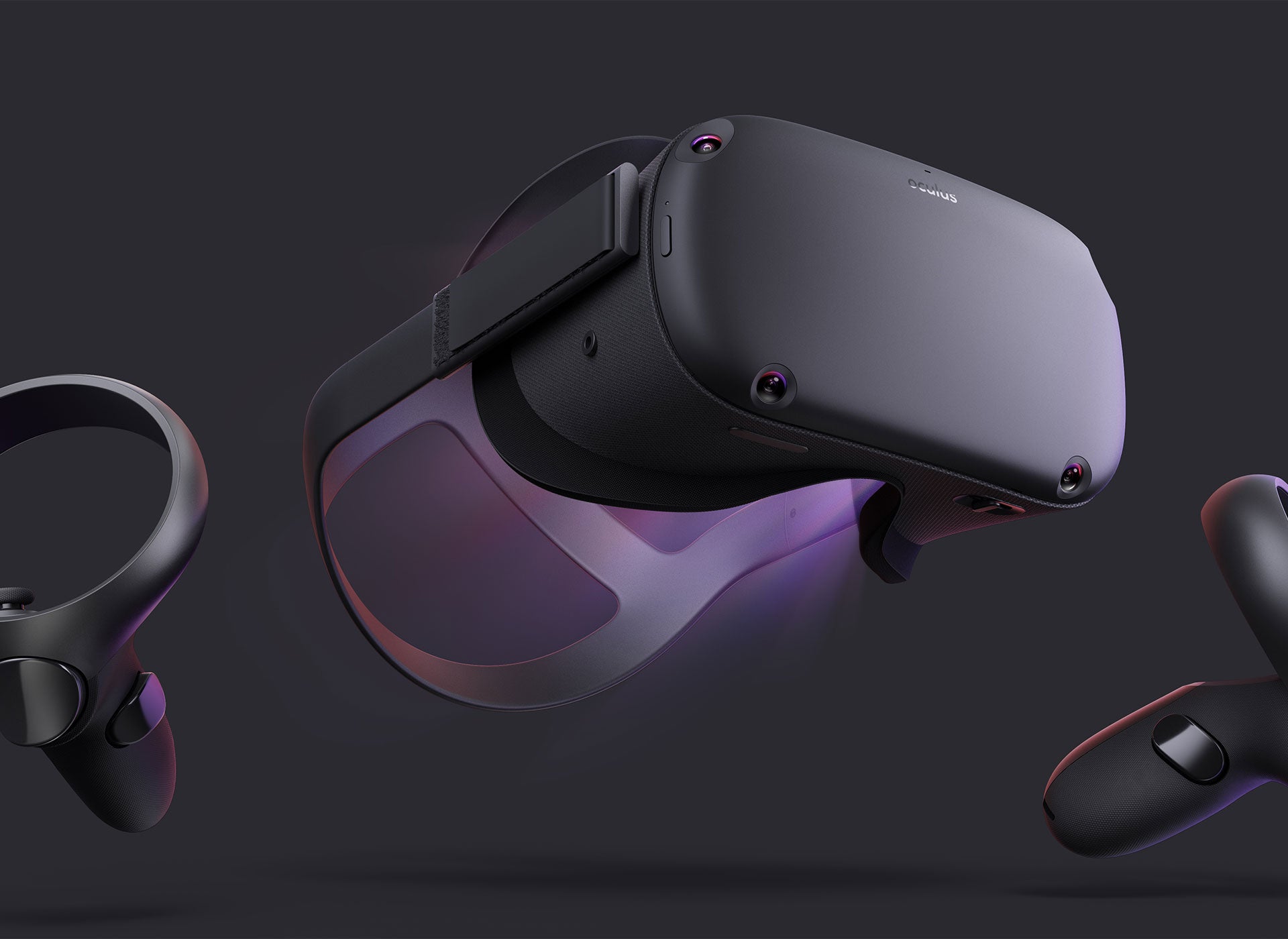
Oculus, the maker of virtual reality (VR) headsets owned by Facebook, has announced that it will begin requiring users to log in using an account with the social media giant to access their devices.
The plan, which was announced in an Oculus blog post on Tuesday evening, will require first-time users to log into their Oculus VR headsets using a Facebook account from October of this year.

Access deeper industry intelligence
Experience unmatched clarity with a single platform that combines unique data, AI, and human expertise.
Those who already own headsets will be able to continue to login using their Oculus account, but only until 1 January 2023, when all support for those accounts will cease. Oculus has also warned that some games or apps “may no longer work” if a user opts not to switch to a Facebook account, although hasn’t said how many. Furthermore, any new devices that users purchase will require a Facebook account.
The move has confirmed the worst fears of long-term Oculus fans, many of whom have been following the company since it first launched on Kickstarter in 2012 by then 20-year-old Palmer Luckey.
Many took to social media to express their concerns, voicing their fears in no uncertain terms over Facebook’s dire track record on privacy.
“We’re not getting shepherded into your fucking data camps so you can further exploit people for money until your robot leader gets dragged in front of Congress again,” wrote user Plague of Gripes, in a tweet in response to Oculus’ announcement that had been liked over 1,000 times at the time of writing. “None of this is required or benefits the consumer.”

US Tariffs are shifting - will you react or anticipate?
Don’t let policy changes catch you off guard. Stay proactive with real-time data and expert analysis.
By GlobalDataThe account decision is the realisation of fears first expressed by VR fans when Facebook bought Oculus back in 2014, a move that sparked horror from many.
“Congratulations, you just killed any and all hope or trust millions of people had in your product and the future of gaming and computing as we know it,” Reddit user OpenSauss wrote in response to a post by Palmer Luckey announcing the decision.
Users also reacted with derision to Luckey’s claim that “Mark [Zuckerberg] and Facebook have been champions of open software and hardware” and expressed concerns that Facebook’s ad model would infect the freedom-minded community developing around the Oculus platform.
The Oculus VR fanbase: At odds with account-led Facebook
At the core of the issue is that Facebook’s plans for Oculus VR are wildly different to those of the original community.
The VR hardcore is made up of tech and hardware enthusiasts, who are typically pro-privacy and against the walled garden approach to tech that Facebook has increasingly been championing.
Many are impassioned supporters of open source and highly supportive of the grassroots maker culture that enabled the original Oculus headset to be developed. And they see VR as a new domain where these principles can be applied.
Facebook’s vision for VR is not interested in those fans and at its core is deeply at odds with their values.
Back in 2017, Zuckerberg said that the company wanted to “get a billion people in virtual reality”, and has since characterised his future vision of Oculus as the maker of VR that is highly social, accessible and available as part of the Facebook ecosystem – through, of course, each user’s account.
Oculus VR products launched since Facebook acquired the company have echoed this, including Oculus Quest, the cheaper standalone headset. A social platform, Facebook Horizon, was also launched in closed beta this year, providing a space for collaborative, shareable creations, virtual exploration and multiplayer gaming.
All of these are steps towards a friendlier, more accessible form of VR, where older, less tech-savvy users – now a core part of Facebook’s wider userbase – can join in without feeling like the technology is not for them.
But for that to happen, this pesky hardcore of anti-surveillance, pro freedom-to-modify users will need to stop being the core of Oculus’ customers.
Out with the nerds: Towards Facebook’s vision
When Facebook first acquired Oculus, it suggested that the path to billions using VR would be very short, with comments made half a decade ago suggesting that we’d all be accessing a Facebook-run virtual world by now.
But VR adoption has not been anywhere near as enthusiastic as Zuckerberg hoped, something that he admitted to CNET in 2019, saying “I don’t think it’s a 2020 thing. But hopefully it’s not a 2030 thing”.
Oculus VR is only one small part of a wider goal by Facebook to create an ecosystem of products that are all under its domain, accessible by a single account. It has expanded into shopping, is launching its own cryptocurrency and has even started a dating platform, among a host of other services that together are slowly combining to form a vast interconnected walled garden of services that are designed to cover almost every part of your life.
In short, Facebook is angling to become the WeChat of the West, where everything you do in the ever-expanding digital world can be accessed through its platform.
Those that aren’t fans of such a vision are, therefore, not helpful to have around, and by providing this requirement for a Facebook account for Oculus VR, the company is essentially giving these users their marching orders.
There are other headsets available where their view of VR is more accepted, most notably the HTC Vive, and Facebook knows it.
Read more: Libra is Facebook’s bid to become the world’s currency – should we be worried?







